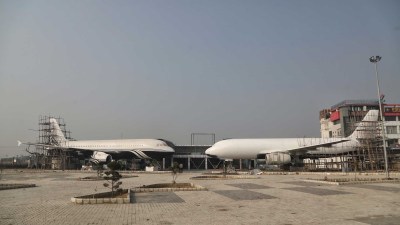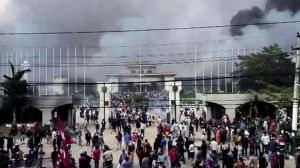Petro prices to go up as FM refuses to climb down
NEW DELHI, May 15: The Finance Ministry today rejected demands for slashing Cutstoms and Excise levies on the oil sector virtually leaving ...

NEW DELHI, May 15: The Finance Ministry today rejected demands for slashing Cutstoms and Excise levies on the oil sector virtually leaving the government with no other option but to increase the prices of petroleum products.
As a result, Prime Minister I K Gujral has directed the ministries of Finance and Petroleum to come up with a “workable proposal” on the oil price hike. The proposal, he said, must be finalised within a week. (The United Front Steering Committee is slated to meet on May 25).
Gujral had to intervene in the high-level meeting today following disagreement between the two ministries over how to go about the price hike which, both feel, is inevitable.
During the meeting, Finance Minister P Chidambaram rejected the Petroleum Minister T R Baalu’s request for reduction in import duty so that the proposed price hike would not be as large as what is required to offset the Oil Pool deficit, estimated at Rs 16,000 crore. To partially offset the deficit, the Petroleum Ministry’s proposal seeks a 10 per cent cut in customs duty on crude oil and petroleum products as well as reimbursement of Rs 4,360 crore of import duty collected additionally due to hardening of international prices of crude oil and petroleum products.
The Ministry’s rationale is that the resultant savings would help the government to bridge the pool deficit with a marginal hike in prices of petroleum products.
The ministry explained its earlier recommendation for a 15 to 20 per cent hike in prices of petroleum products such as diesel and kerosene and the possibility of exempting petrol in the next revision.
Chidambaram was of the view that the Petroleum Ministry was free to resort to any method to bring down the deficit without affecting the budgeted revenues .
At the end of the meeting it was decided that the matter could be further discussed at the UF Steering Committee meeting on May 25.
At the last meeting of the UF on Saturday last, the Left parties strongly opposed any move to hike the prices of petroleum products saying it would have a cascading effect on prices and put a heavy burden on the common man.


- 01
- 02
- 03
- 04
- 05





























